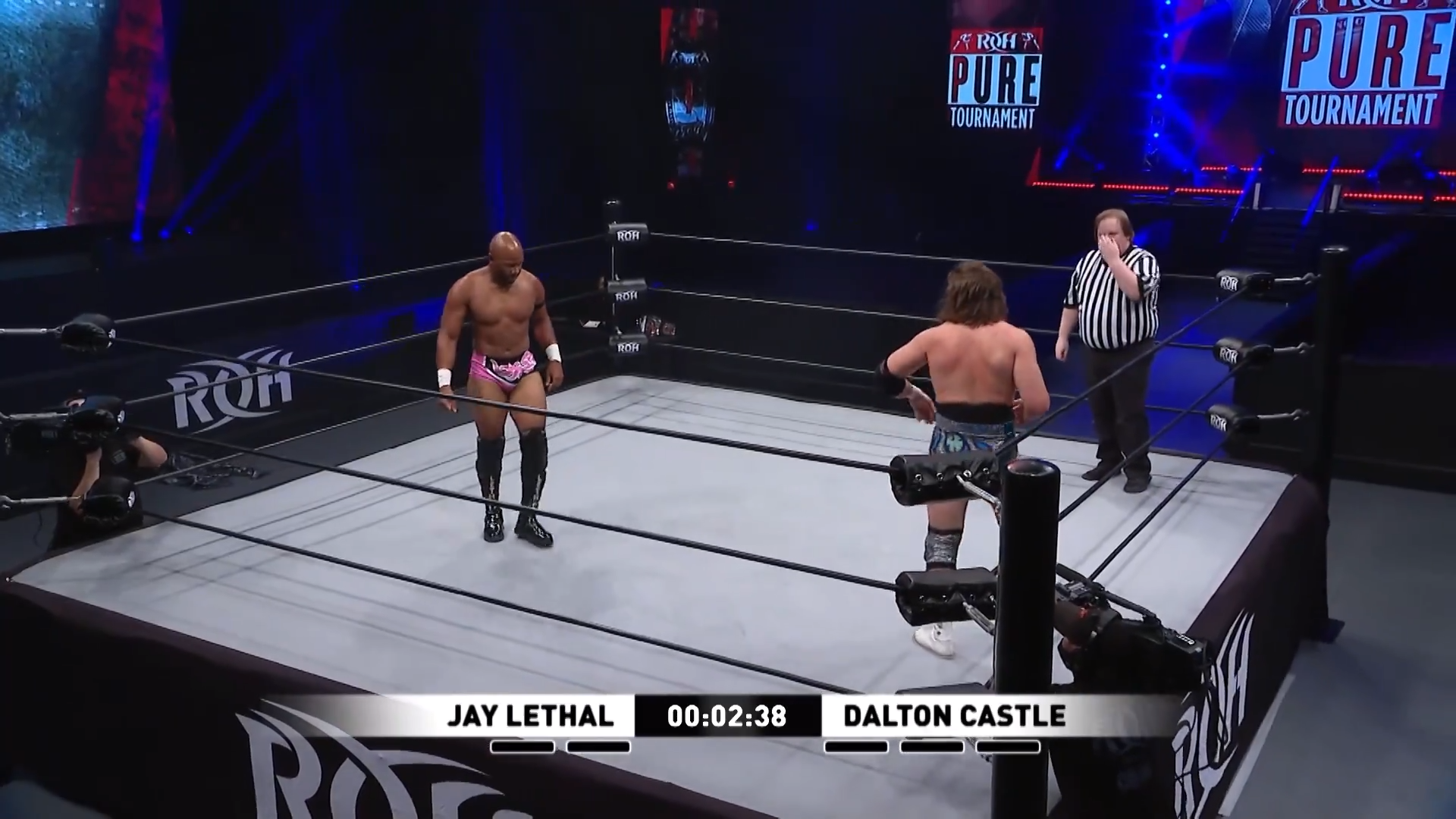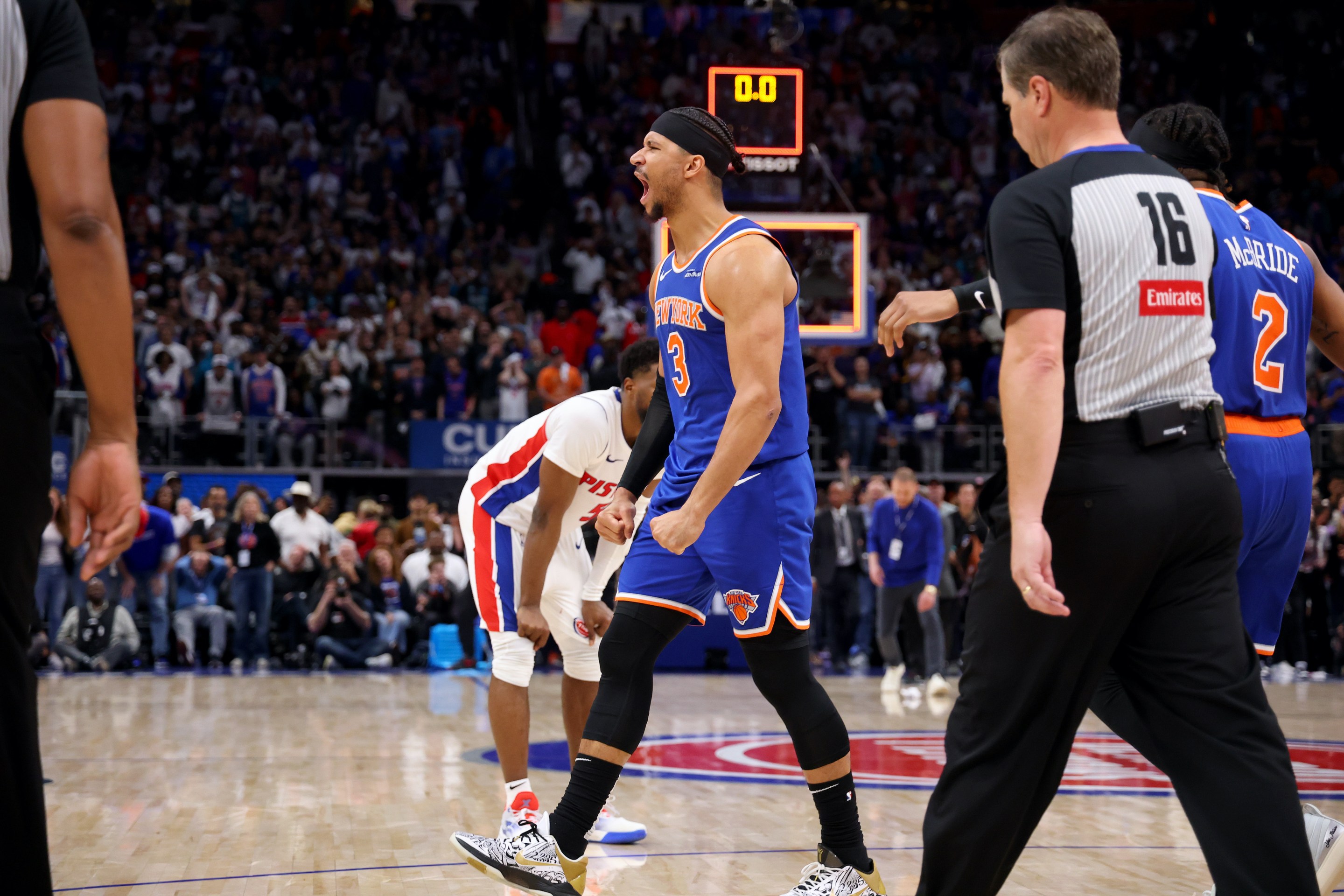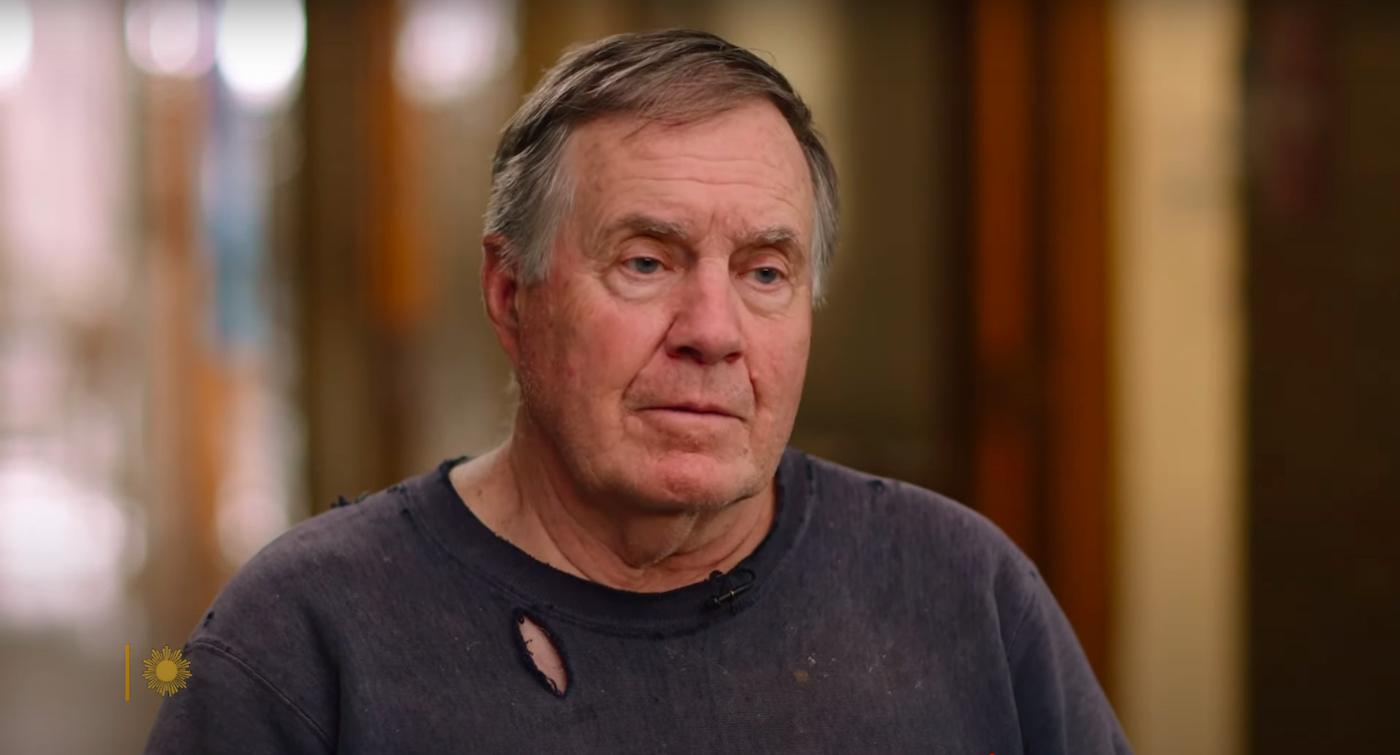While the twin pillars of American pro wrestling missed very few beats in making the transition to a pandemic production schedule, one of the promotions on the tier below AEW and WWE only just made its return to action this week. On Monday, Ring of Honor Wrestling aired its first show since the coronavirus pandemic overwhelmed the United States, and it appears that the time away has allowed the company both to re-tool and focus more intently on what makes it stand out from the competition: realistic professional wrestling.
Ring of Honor blazed back onto the scene with the return of the Pure Championship and an accompanying tournament that would eventually crown the eighth champion in that belt's lineage. The Pure Championship debuted in 2004, and has been held by such luminaries as AJ Styles, Nigel McGuinness, and Samoa Joe. The wrestler then known as Bryan Danielson, now much better known as WWE's Daniel Bryan, unified the Pure Championship with the ROH World Championship in 2006. The title has lain dormant for fourteen years.
Above all, the Pure Championship was a wrestler's title, held by the best in-ring technicians the early ROH had to offer. The new tournament and its accompanying production bells and whistles suggests that the company is taking a back-to-basics approach to the challenge of rising above a busy churn of other second-tier promotions. There's something appealingly simple about the concept, and the tournament—for a wrestling promotion looking to reestablish its identity, Actual Wrestling is both a natural and bold place to start.
It fits, then, that the Pure Title Tournament is based on rules. All wrestling has rules, although those rules mostly exist to be broken when the dramatic stakes demand as much. That does not appear to be the case here, though. Among the many rules laid out at the beginning of Monday's episode by backstage interviewer Quinn McKay, wrestlers would be "terminated" if they interfere in an ongoing match. There are also limits on rope breaks (three per match), a ban on closed fists to the face, and strict time limits; in a departure from other promotions' usage of time limits, ROH has a running timer on the bottom of the screen. So far, it works—in the opening match between former ROH world champs Jay Lethal and Dalton Castle, the drama tightened as the time inched closer to running out.
If it weren't clear from the rules and bare-bones production, ROH also is banning fans from the tapings, which lends to a more intimate and visceral visual experience. The commentators made the decision to stick to sports even more explicit, as the two-man team of Caprice Coleman and Ian Riccaboni constantly highlighted, to positive effect, that the competitors onscreen are "wrestlers, not entertainers." Reached by phone, Riccaboni said that the idea for the tournament was born out of an in-storyline group called Lifeblood, which debuted in 2019 with the intention of bringing ROH back to what it used to be. "There was this idea that somewhere along the way, Ring of Honor wasn't quite doing what it built its reputation on, in terms of wrestling," Riccaboni said. "What if we just did wrestling? That's in the name of our company. That's what we're known for. What if we just went back to our roots?"
Ring of Honor was founded as the wrestling fan's promotion, and some of the best wrestlers in history stepped inside its ring during its early years: CM Punk, Doug Williams, Low Ki, Christopher Daniels, Kenta Kobashi, and the list goes on. In the years since, the company enjoyed a fruitful partnership with New Japan Pro Wrestling, this era's standard-bearer in wrestling quality, but later lost itself along the way. The drift was never more obvious than during the era dominated by the Young Bucks, who perfected their obnoxious "flippy shit" gimmick in ROH before helping to start AEW. (This is not a shot at the Bucks, to be clear. That gimmick works well for them but is as far from the original ROH ethos as you can get.)
During these rudderless years, fans first bristled and then voted with their feet by abandoning ROH in droves. The last couple of years have been a low point, both in terms of viewership and the more nebulous quality of "relevance." The deep pockets of the ubiquitous reactionary broadcasting concern Sinclair Broadcasting, which bought the company in 2011, guaranteed that business went on as usual, and ROH's most talented wrestlers were regularly poached by either WWE or, more recently, AEW. It appears that the new emphasis on the in-ring product that debuted on Monday is a way to combat both the loss of focus and that more worrying loss of star quality.
How wrestling's biggest promotions dealt with the challenges presented by the pandemic helped inform how ROH would make its own return, especially once they decided on the Pure Title Tournament. "Over the pandemic, Ring of Honor had the liberty of seeing what other companies were doing, and how companies were addressing things like no crowds," Riccaboni said. "When we saw that the pandemic made this homogenous landscape, it made it a no-brainer, because all of a sudden, 'wrestling' was different. Just presenting wrestling provided something different."
Riccaboni also said that the company has a lot of people in production with sports backgrounds, which helped with execution when the plan to turn to a "real sport" look and focus come into shape. He specifically called out Mark Brown, a former Washington Nationals and Washington Football Team producer who brought statistics with him to the new tournament. Jay Lethal, for instance, was introduced alongside a statistic that said he had won 88 percent of his matches in Baltimore, where the tapings took place.
The company is also looking outward, bringing in four highly-touted independent wrestlers to fill out the field of 16. Wheeler Yuta debuted on Monday's show, losing a technical masteripece against "The Octopus" Jonathan Greshman, a tiny performer expertly trained in submission wrestling. Yuta looked like a million bucks in the ring, both from an ability standpoint and a looks standpoint; as Defector's sneakerhead Dan McQuade figured out with scary speed, Yuta was rocking the ASICS Onitsuka Tiger Mexico Mid Runners with his multi-colored pants, and it helped make him look important and unique, even in a loss.
The other independent wrestlers in the field are still yet to debut, but Tony Deppen, Rust Taylor and, especially, Fred Yehi come with years of hype from their work on the circuits. Even if they all lose in round one, their bows on a bigger stage should be appointment viewing.
For a company that had previously seemed content with its stable but diminished spot in the wrestling hierarchy, Monday's show was also encouraging. ROH seems smart enough to incorporate what works about this specific tournament into their regular shows, which will resume after this eight-week bracket is resolved. Riccaboni is hopeful that the changes will last beyond the Pure Title Tournament, and eventually be brought into harmony with the character work that has made ROH stand out in the past. "I still think you'll see personalities shine through," Riccaboni told me. "But I do think the folks that were part of the bubble and those who weren't, they're going to be motivated by the style [in the ring]. The reactions so far, from social media, are enough in the positive with the style that even those not in the tournament might consider presenting themselves that way."
The video package interviews at the start of matches should be one of the changes that stays; for those fans tuning in out of curiosity, the packages deftly sold all four wrestlers and their motivations for winning the tournament. Lethal wants to make up for his previous failures in the Pure division, where he had a 3-5 record before Monday; Castle wants to prove he's not just a "character wrestler," but a 23-year veteran with talent to boot; Yuta just wants to establish himself against some of the best wrestlers out there; Gresham carries the weight of the Pure division's past as the company's best technical wrestler.
This type of storytelling isn't nearly as simple as it looks, but the four video packages pulled it off in a way that didn't seem forced, while also setting up potential matchups down the road. For example, Lethal and Gresham are on opposite sides of the bracket and currently hold the ROH tag team titles together; both acknowledged the possibility of facing off against a friend in the final.
More than anything, though, it was the return to wrestling that worked. Both matches had a manic energy to them, one that was both volatile and completely understandable given the long lay-off for all four guys. The lay-off also led to a fun moment in the opening match, after Lethal hit Castle with his finisher; Coleman said on commentary that the match had to end there because "there's no way in the world Castle has felt that much pain" during his time away from the ring.
Too determined a return to the promotion's roots could be alienating for the new fans ROH wants to capture, but there's something compelling and clarifying about it. The new direction strips away a lot of the pomp and circumstance that often falls short in other promotions. Given that the company paid its talent through the pandemic and beefed up its production staff in the meantime, the break might have been a blessing in disguise. If Monday's show is any indication, the next seven weeks of ROH should provide both its fans and its detractors with something unique: good, serious wrestling, presented with no extraneous elements. For a company fighting its way back to relevance, it just might be a winning niche.






